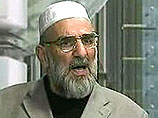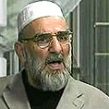
Chechen Rebel Representative Reportedly Switches Sides
Publication: North Caucasus Weekly Volume: 10 Issue: 7
By:

The press office of Chechen President Ramzan Kadyrov reported on February 16 that Bukhari Baraev, brother of the notorious Chechen rebel field commander Arbi Baraev, who was killed in 2001, and father of Movsar Baraev, who led the militants that seized hostages at Moscow’s Dubrovka theater in 2002, had resigned his position as special representative of Chechen rebel leader Dokka Umarov in Europe and returned to Chechnya. According to Interfax, the press office quoted Baraev as calling on members of the republic’s “illegal armed formations” to lay down their weapons and return to peaceful life. It also quoted him as saying that while in Europe, he had learned about the changes that had taken place in Chechnya under Kadyrov only through media reports and was “blinded by fanatical ideas,” and now sees no reason to oppose Kadyrov’s government.
Baraev also said he hoped that the London-based Chechen separatist prime minister, Akhmed Zakaev, would reach the same conclusion, adding that Zakaev is “considered quite a wise man” and thus capable of understanding that his policy is ultimately aimed at the “extermination of his own people.” Baraev said he hoped Zakaev would break his ties with “the extremists’ breadwinner,” Boris Berezovsky, the London-based exiled Russian tycoon, and return to Chechnya and help build the republic. “The idea of the holy war has nothing to with today’s realities and with what is happening in Chechnya,” Baraev said, adding that Chechnya under Kadyrov “does not oppose Islam” and has built “the most beautiful mosque in Europe.” He also said that Movladi Udugov and “other extremist and terrorist ideologists” should immediately cease disseminating “false propaganda” on the Internet and stop trying to influence young people. He called Udugov a “traitor” and an “apostate.”
Anatoly Safonov, Russian President Dmitry Medvedev’s representative for international cooperation on combating terrorism and organized crime, said at a press conference on February 17 that Zakaev—who is wanted in Russia, among other things, for allegedly organizing an armed rebellion, setting up illegal armed formations and attacking a law-enforcement official, as well as alleged involvement in the Dubroka theater hostage siege—could be amnestied.
“The path to amnesty is not closed to Zakaev,” Safonov said. “If he goes to Russia and proves his innocence in court, he can use the possibility given to him by President Kadyrov.”
Zakaev recently rejected Kadyrov offer to return to Chechnya to work in the republic’s Culture Ministry and/or its state theater (North Caucasus Weekly, February 12). Zakaev was an actor before Chechnya’s two wars began.
Separately, Interfax on February 19 quoted another former rebel leader who switched sides, Magomed Khambiev, as accusing Berezovsky of financing Udugov and the late rebel warlord Shamil Basaev and of broadcasting “Wahabbi ideas.” Khambiev, who was defense minister in the separatist Chechen Republic of Ichkeria (ChRI) government under Aslan Maskhadov, charged that Berezovsky had financed “illegal armed unit” leaders “under the guise of paying ransoms for hostages” as well as the Kavkaz television channel, which he called a “Wahhabi mouthpiece.”
“Not only did Berezovsky provide the money for buying state-of-the-art equipment, but he also financed the TV channel’s work while being perfectly aware that the channel propagated Wahhabism round-the-clock,” Interfax quoted Khambiev as saying.
Khambiev also alleged that Berezovsky has “personally” handed Basaev $1 million upon arriving in Ingushetia after the first Chechen military campaign. “It greatly surprised and outraged me,” Interfax quoted Khambiev as saying. “I was surprised that someone representing a country hostile to Ichkeria and being a deputy head of its [Russia’s] Security Council should give money to Basaev. I asked Basaev why Berezovsky had given the money and why Basaev accepted it. He answered that Berezovsky was afraid of him and therefore paid the money," Khambiev said. He claimed that it later turned out that Berezovsky had given Basaev not $1 million, but $2 million while in Ingushetia.




